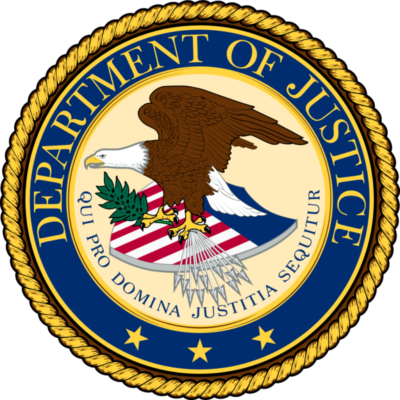To: Attorney General Merrick Garland and Boeing CEO Robert ‘Kelly’ Ortberg
From: Tom Fox
Re: The Boeing Monitorship
===============================================================
Gentlemen
I have written blog posts and articles about the proposed Plea Agreement negotiated between Boeing and the Department of Justice (DOJ). As the leaders of both organizations, I wanted to address you both directly.
To General Garland, this is the most important monitorship in the history of the DOJ.
To CEO, Ortberg-Boeing has to turn around its culture completely.
To both of you, business as usual will not suffice.
The DOJ must start with full transparency in the process, for sunshine in the light of day is always the best disinfectant. There must be full transparency in the selection process and the oversight of the Monitorship itself, with a party outside the DOJ and Boeing overseeing this process. In other words, it cannot simply be a process where the DOJ decides who will be the monitor, tells the court its selection, and then the DOJ goes off to oversee the process and, in three years, tells us whether Boeing has met the terms of the Monitorship.
First, completing the Plea Agreement by fulfilling the terms laid out must be a condition of the Probation, which the Court must approve. Second, this process must be overseen by the District Court. The Monitor should report to the Court or a court-appointed Special Master to determine whether Boeing has met the requirement to “create and foster a culture of ethics and compliance with the law in its day-to-day operations.” Both parties must realize that Boeing’s culture is broken and must be fixed. This is beyond policies and procedures and a best practices compliance program. This is fixing Boeing’s DNA.
The DOJ recognized that it is more than compliance at Boeing, which is broken; it starts with culture and moves to safety, QA/QC, and even down to record and document keeping. It is far beyond the current mandate of the Plea Agreement, which states that the Monitor should test “the effectiveness of the Company’s compliance program and internal controls, record-keeping, policies, and procedures as they relate to the Company’s current and ongoing compliance with U.S. fraud laws.”
At least this is a decent start, but there are so many other areas that Boeing, the DOJ, and the Monitor must fix. I urged the DOJ to ‘Think Big’ about this monitorship. It concerns not only fraud and record keeping but also culture, safety, QA/QC, compliance, Speak Up and Listen Up, Supply Chain, fraud, Export Control, Sanctions, and a wide variety of other areas not addressed in the Plea Agreement.
Put all of that responsibility on the Monitor but make sure the Monitor has the resources to oversee this work for all of the stakeholders involved: Boeing, its shareholders, the victims’ families, employees, third parties, the U.S. government, Boeing’s customers and the U.S. and global flying public. It all starts at the top of the organization. The Monitor must not simply assess the Board of Directors and senior management’s commitment to and effective implementation of the corporate compliance program “as necessary to address and reduce the risk of any recurrence of the Company’s misconduct”; both the Board and senior management must lead this effort by example.
Finally, the DOJ must get this right. Everyone knows the DOJ’s failures from the 2008 financial crisis to prosecute any bank meaningfully. The phrase ‘too big to fail’ has entered the Lexicon as a byword for corporate malfeasance that gets off with ZERO consequences. This matter is much more important than those banks. It concerns the U.S.’s flagship airline manufacturer and whether it can be turned around through government oversight. If the DOJ does not get this Monitorship right, it will demonstrate once and for a time the failure of this program as a tool to fix a broken business that violates the law multiple times.
But this is not all on the backs of the DOJ or the Monitor. Boeing has an equally key role in this Monitorship. That is why the role of the new CEO is so important. Kelly Ortberg must fully embrace this monitorship and all it will entail to the company as the last and best way to turn it around. He comes from but is outside the organization, so he is not tainted with the company’s prior cultural miasma. Further, he comes from a former supplier to Boeing, Rockwell International. This means he knows the business, and he knows Boeing.
His main focus will be to turn around the company’s manufacturing side and create a culture where employees have enough trust in their employer to raise their hands and speak up when they see something wrong. They also know that the company will not harass or terminate them for doing so. In short, he must set the correct cultural tone and go into the weeds to fix how the company builds planes.
This focus requires Ortberg to fully embrace the Monitorship and a Monitor selected with full transparency and oversight by the Court. Ortberg should welcome the opportunity to turn Boeing around literally with all the help he can garner, not do as his predecessors did with so much opaqueness, where they clearly did not accept their responsibility to fix the company’s broken culture.
Finally, Ortberg must reach out to the victims’ families of the two 737 MAX crashes and listen to their concerns. The victims’ families’ interests are aligned with Boeing on one key point: They do not want any family to go through what they had to go through. Ortberg’s meeting with and listening to the victims’ families can go a long way toward their healing.
Boeing is a key component in U.S. national security. Boeing provides advanced missile defense systems, including the Ground-based Midcourse Defense (GMD) system, which protects the United States from ballistic missile attacks. The company also offers solutions for tracking and monitoring space objects, which is vital for maintaining the safety and security of space operations. Boeing is also involved in the Internal Space Station (ISS), orbital test vehicles, and deep space exploration.
In short, no single institution is as important to the U.S. in manufacturing as Boeing. Nearly 200 million Americans who fly in Boeing planes depend on Boeing to get it right. The U.S. (and the world) economy needs the drive that Boeing provides. The U.S. national security depends on a well-functioning Boeing to lead the technological drive to protect the U.S. for the rest of the 21st century and beyond. Boeing needs to continue its work as one of the leading companies in space exploration. Lastly, and indeed not least, the families of the victims of the two 737 MAX crashes should receive some justice for all they have been through and then seeing Boeing not live up to its agreement in the original DPA or worse for there to be more failures under this Plea Agreement.
So one final plea to General Garland and CEO Ortberg-Get it Right This Time




